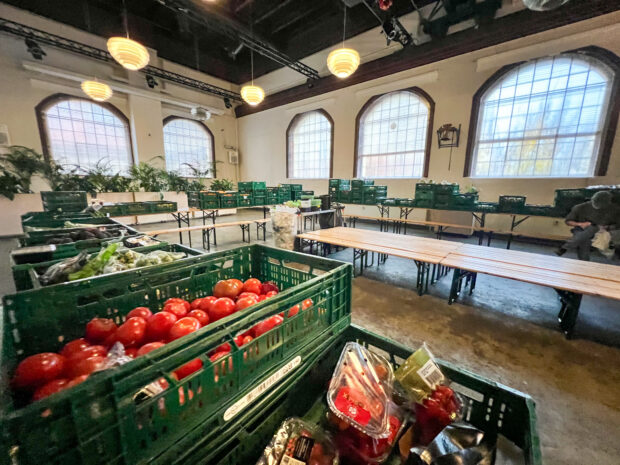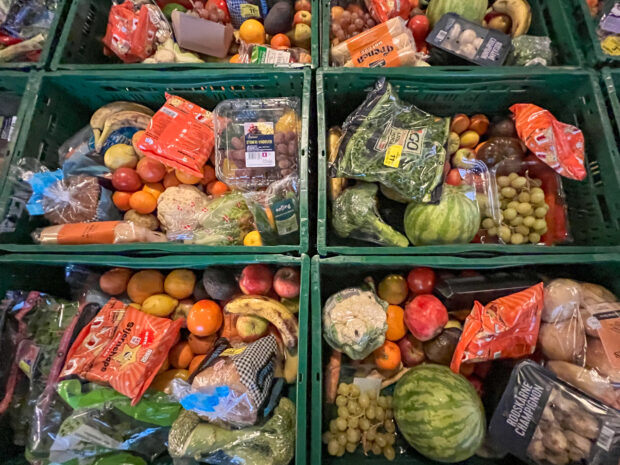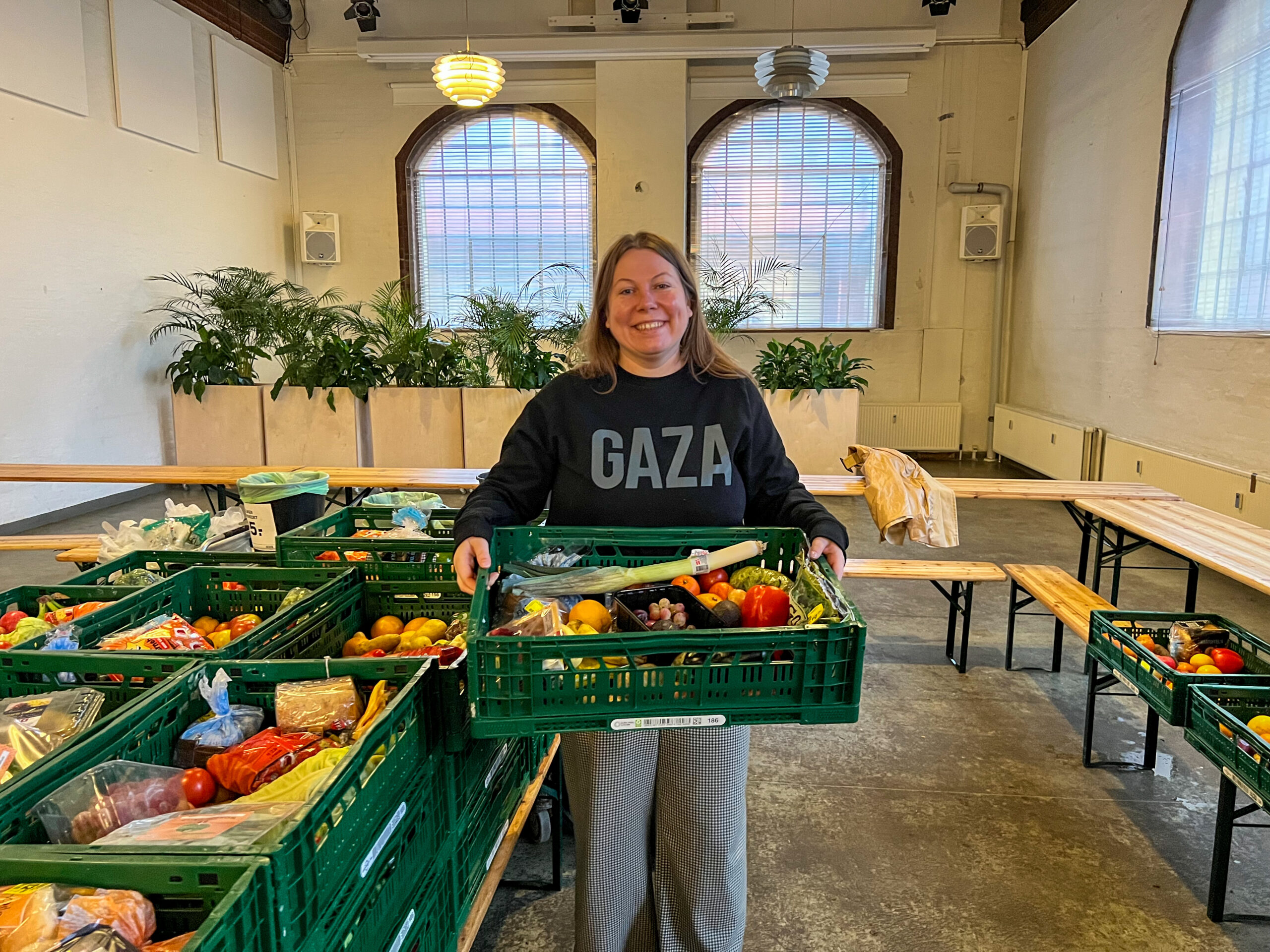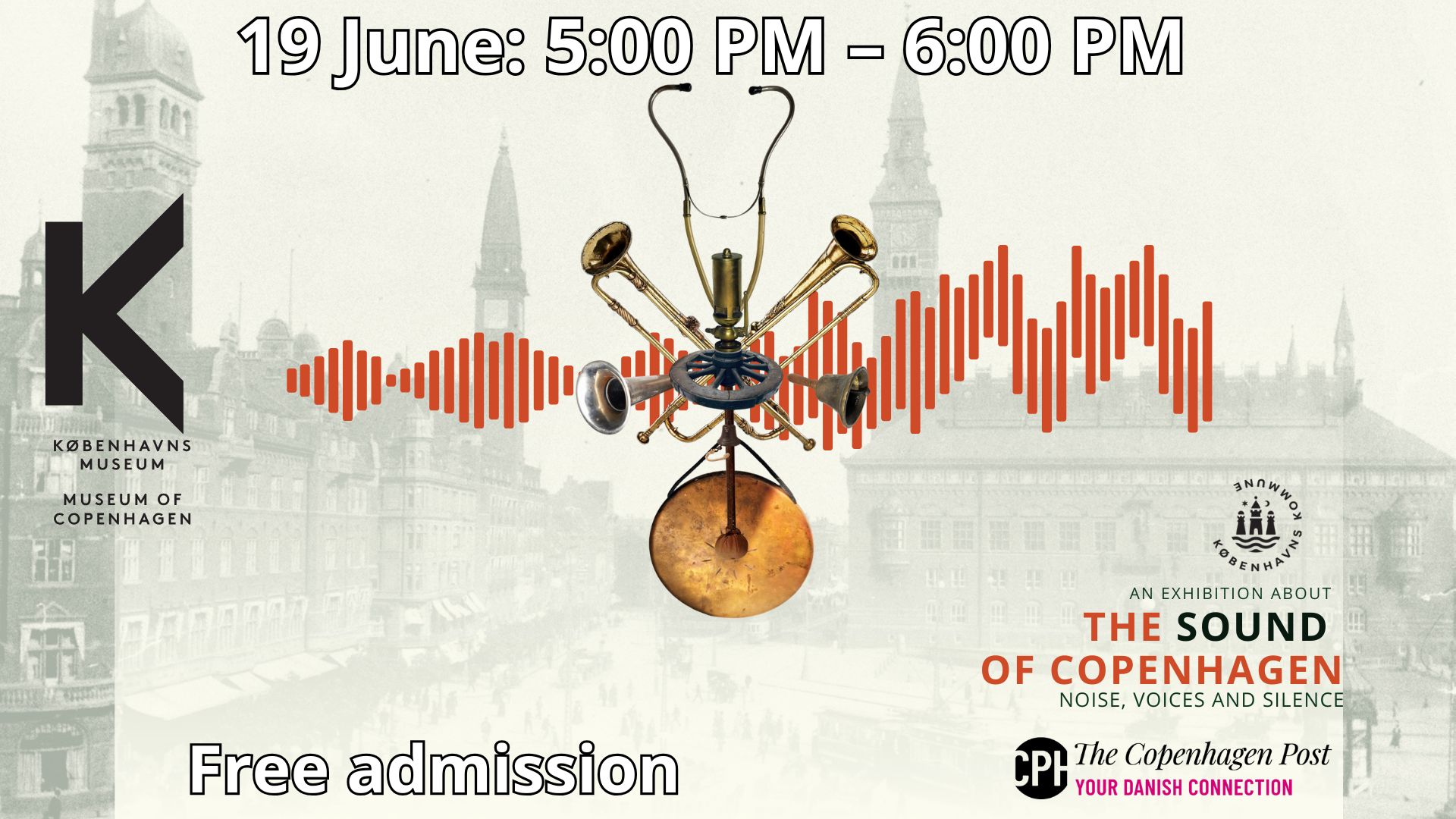For a country that prides itself on its green credentials, Denmark has a dirty secret. Time and time again, studies show it’s remained one of Europe’s worst countries for wasting food. The third worst, in fact, sitting just behind Cyprus and Belgium.
With this in mind, on a grey Sunday afternoon and with the street lights doing their best against a heavy, low sky, I set out to meet a group of people trying to make a difference.
Originally from Romania, Roxana Zlate founded Madboks, a non-profit volunteer organisation set up to combat the tide of supermarket food waste across Copenhagen. I met her in one of Madboks’ three hubs, just off Amagerfælledvej, after she’d finished sorting and categorising a room full of fruit, vegetables, and baked goods.
“You’ll never find ugly-looking fruits or vegetables on the shelves in Danish supermarkets, because they switch things over so fast and prioritise keeping shelves full.” She’s standing in front of green boxes filled with broccoli, peppers, and cucumbers. When I comment on how pristine it all looks, she’s quick to highlight the hard work that goes into it. From the van drivers that collected the food, to now- with it all sorted and organised.
“If the supermarkets have a bag of carrots, all wrapped in plastic, and just one carrot goes bad, they get rid of the whole thing,” she looks down at a green tray filled with bright orange carrots. “It’s just beauty standards… and a nonsense ideal.”
Tons of Food
Volunteers are buzzing around us to assemble food boxes ready for collection. Each box will contain a mix of goods saved from over 40 food producers and retailers across Copenhagen. In an hour they’ll be opening the doors and the boxes- collected for a suggested donation of 25kr- will end up in the homes of the local community. We get out of the way and sit on the steps outside.
Roxana, like all the volunteers here, is unpaid. I asked her what drove her to the cause of food waste. “I grew up poor and food was never something that was to be taken for granted… it’s something that’s sort of just ingrained in me to not waste food.”
Madboks was born when Roxana was studying at Roskilde University, out of a drive to save food in an effective and scalable fashion. “When you’re a student you have a lot of free time, but after that, it gets much harder- especially with hundreds of volunteers… There’s a lot of admin that needs to happen.” She’s not a student anymore, so I ask her how she manages, “Nowadays… It’s because I have a really good core group of admin volunteers to help.” This group now helps Madboks save 2 to 3 tonnes of food from being wasted a week.
The Danish Environmental Protection Agency estimates that 814,000 tonnes of food is wasted annually in Denmark, and despite various initiatives, this amount is staying fairly constant. Some people might find it hard to move to a new country and try to tackle something like this. “Navigating in Danish is really hard…especially when it comes to the bureaucratic side… and the same with the funding applications I’ve done over the years, to the point that I just truly gave up on it. I figured that if we ask for donations for the food boxes we give out, we can cover the basics.”

International Volunteers
As we’re talking a stream of volunteers is passing us. How come they’re all international? Roxana laughs, “We do have Danish volunteers too! But out of 1000 volunteers, maybe 30 would be Danish.” I wonder if this plays into the separation some immigrants can feel in Denmark, “Totally, but I kind of get it, volunteering has the social element to it that brings internationals together, right?” There’s a sense of community building. “It’s like a shortcut to fitting in… it’s heartwarming to see the belonging aspect.”
Roxana moved to Copenhagen 10 years ago and now works for the UN, having completed a Master´s in African Studies from Copenhagen University. “I would really like locals to understand that volunteering is a great way to bridge the gap between internationals and Danes… bringing integration that is so hard to actually achieve in this country.”
This world of food waste feels hidden from modern, tidy Copenhagen. Isn’t there support available? “The support for food waste isn’t as fashionable as it was before”, so even if the money is there, it’s not as easily accessed. Despite this, the volunteer network Roxana has built seems to have developed into something self-supporting.
It’s starting to get cold, so we head inside. There’s a buzz in the room as some volunteers are done for the day. “It’s a battle to get shifts at all three locations, within a day or two of posting them they’re gone.” It seems it’s not just those collecting boxes that are benefiting. “It really shows that it does a lot more for people- even the volunteers… we don’t need to do much volunteer recruitment these days.”
The boxes are built and ready for pickup. Roxana looks proud of the work as the group of mostly international students put on their winter coats and head back into what’s left of the afternoon light. I can hear a lot of languages, apart from Danish. It’s clear that the Danish Government has as much to tackle regarding food waste as it does immigrant integration.
There is a swell of change – in 2022, 18% of all Danes had downloaded apps for food waste reduction services, but the tide hasn’t turned yet. There’s still much more to do, and it’ll take much more to do it. But here in a warehouse in Amager, Roxana has forged an international group to stand together to try- and founded a community in the process.
“I think you have to be on the outside of things to be able to see the problems within the spaces you’re in, right?”.















